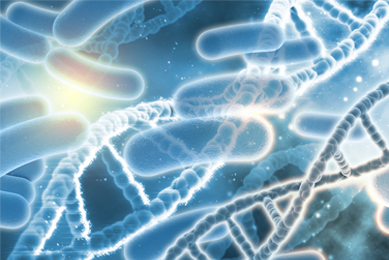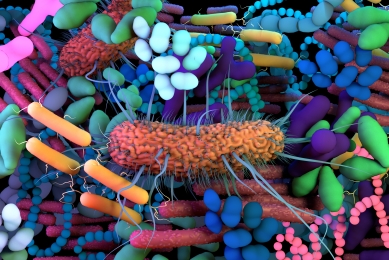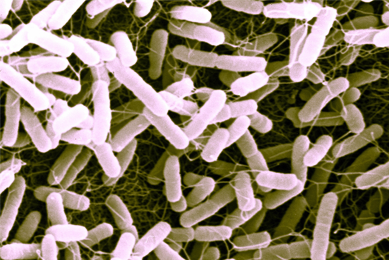Each Tuesday for nine weeks, a new episode will feature a focused scientific discussion hosted by ATCC’s own David Yarmosh along with a guest or two.
The first episode of the 2022 season features Jonathan Jacobs, PhD, the senior director of ATCC’s Sequencing and Bioinformatics Center (SBC), and the ATCC Genome Portal. Jonathan is a thought leader in data provenance and a bioinformation. Dr. Jacobs explains why it's absolutely critical to keep the sequence data current for microbiological materials—the genomics data must match up with the physical material that you're working with in the laboratory. Jonathan also shares a pivotal moment in his scientific research and a glimpse of what’s next in his field.
The next guests are scientists Heather Branscome, PhD, and Fatah Kashanchi, PhD, who discuss how they became collaborators and describe one area of their research: extracellular vesicles (EVs). They explain the differences between the many types of EVs, such as exosomes, and their wide-ranging potential that includes therapeutics and diagnostics.
Listen to the podcast each week, meet the podcast team, and find out how you can subscribe with your favorite podcast provider.
Listen to the inaugural episodes and subscribe
 Podcast
Podcast
Episode 1: The Difficulties of Big Data in the Biological Sciences
Learn about issues such as reproducibility in research, the pros and cons of crowd sourcing data, and a solution in ATCC’s approach to whole-genome sequencing, assembly, and annotation for producing high-quality, authenticated reference genomes
More Podcast
Podcast
Episode 2: Pivoting into Bioinformatics and Capitalizing on Eureka Moments
Learn about the reality of a career in science and some of the eureka moments in bioinformatics that helped shape Dr. Jacob’s career.
More Podcast
Podcast
Episode 3: The Future of Bioinformatics - Challenges and Solutions
Tune in to learn about challenges in the field of bioinformatics that need to be met and how could they be solved.
MoreMeet the podcast team
Brian Shapiro, PhD
Marketing Segment Manager, Oncology, ATCC
Brian A Shapiro, PhD, works to communicate the scientific breakthroughs of ATCC’s product development laboratories to the biomedical research community. Brian is the Executive Producer of ATCC's Podcast, Behind the Biology. Previously, he worked at Virginia Commonwealth University, where he investigated the role of pre-mRNA splicing in the multi-drug resistance of lung cancer. Dr. Shapiro attended the Medical College of Georgia, where his research focused on adrenal physiology as well as diseases of the epidermis.
David Yarmosh, MS
Lead Bioinformatician, ATCC
David Yarmosh is a lead bioinformatician in ATCC’s Sequencing and Bioinformatics Center. He’s a graduate of New York University’s Tandon School of Engineering. He has been working in large data aggregation and analysis since 2013 and microbial genomics with a focus on biosurveillance R&D efforts since 2016. David has led international training exercises in Peru and Senegal, sharing metagenomic analytical capabilities. His interests include genomics database construction, metadata collection, drug resistance mechanisms, bioinformatics standards, and machine learning. Since joining ATCC in 2020, David has worked extensively in SARS-CoV-2 classification, epidemiology, and genomics evaluation, including enhanced and uniform variant reporting. He has contributed more broadly to genomics reporting and analytical standardization and he has helped develop the podcast Behind the Biology, which he now hosts.
Ford Combs, PhD
Bioinformatician, Sequencing and Bioinformatics Center, ATCC
Ford Combs is a new member of ATCC's Sequencing and Bioinformatics Center, having joined in January 2021. As a bioinformatician, he primarily works on ATCC's internal sequencing projects by either assembling and analyzing data or testing and improving bioinformatics pipelines. As the Audio Engineer on ATCC's Podcast, Behind the Biology, Ford performs sound design and audio editing. He holds an MS and PhD in bioinformatics and computational biology from George Mason University. His dissertation focused on topological and machine learning-based approaches to protein secondary structure assignment.